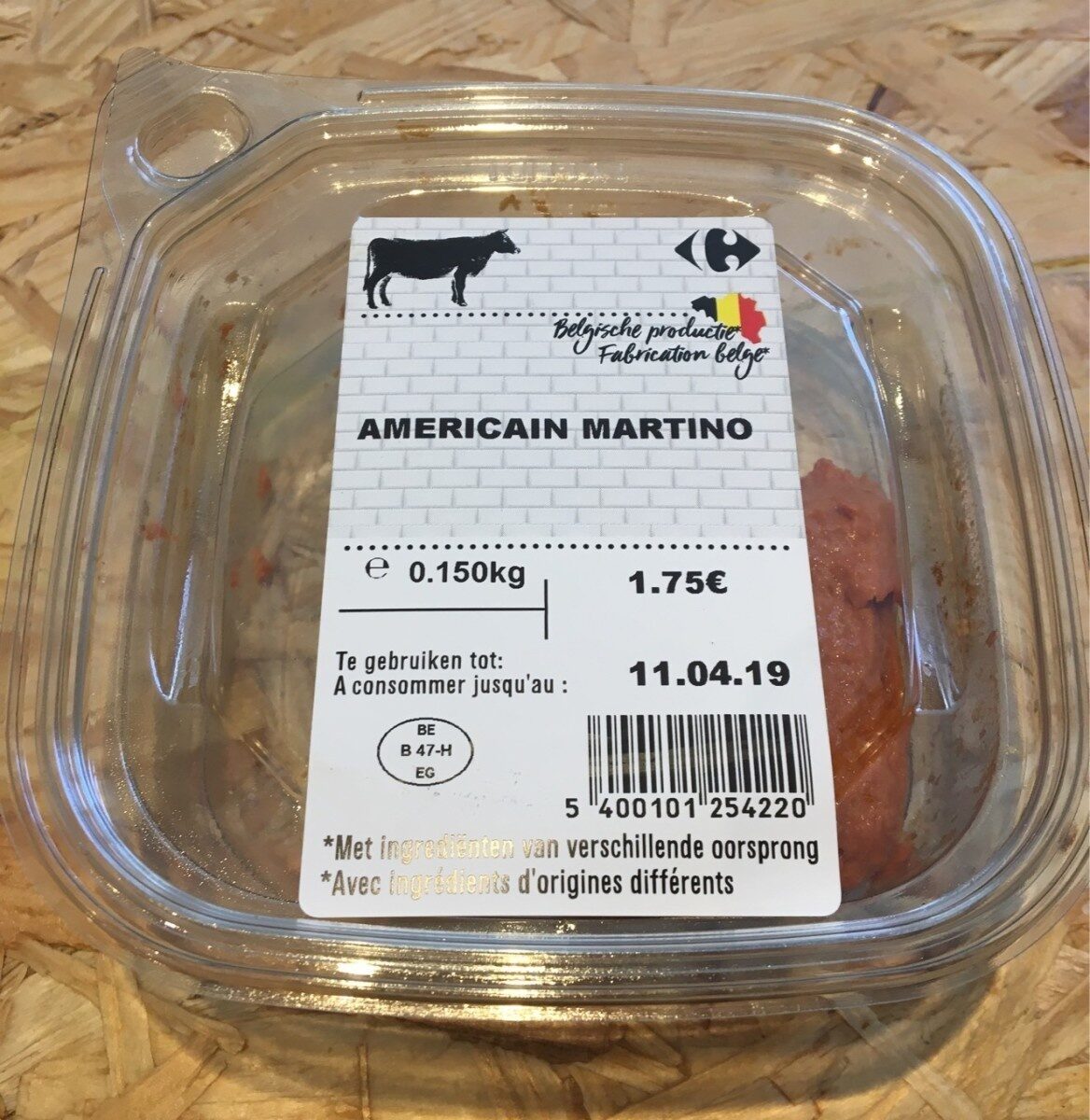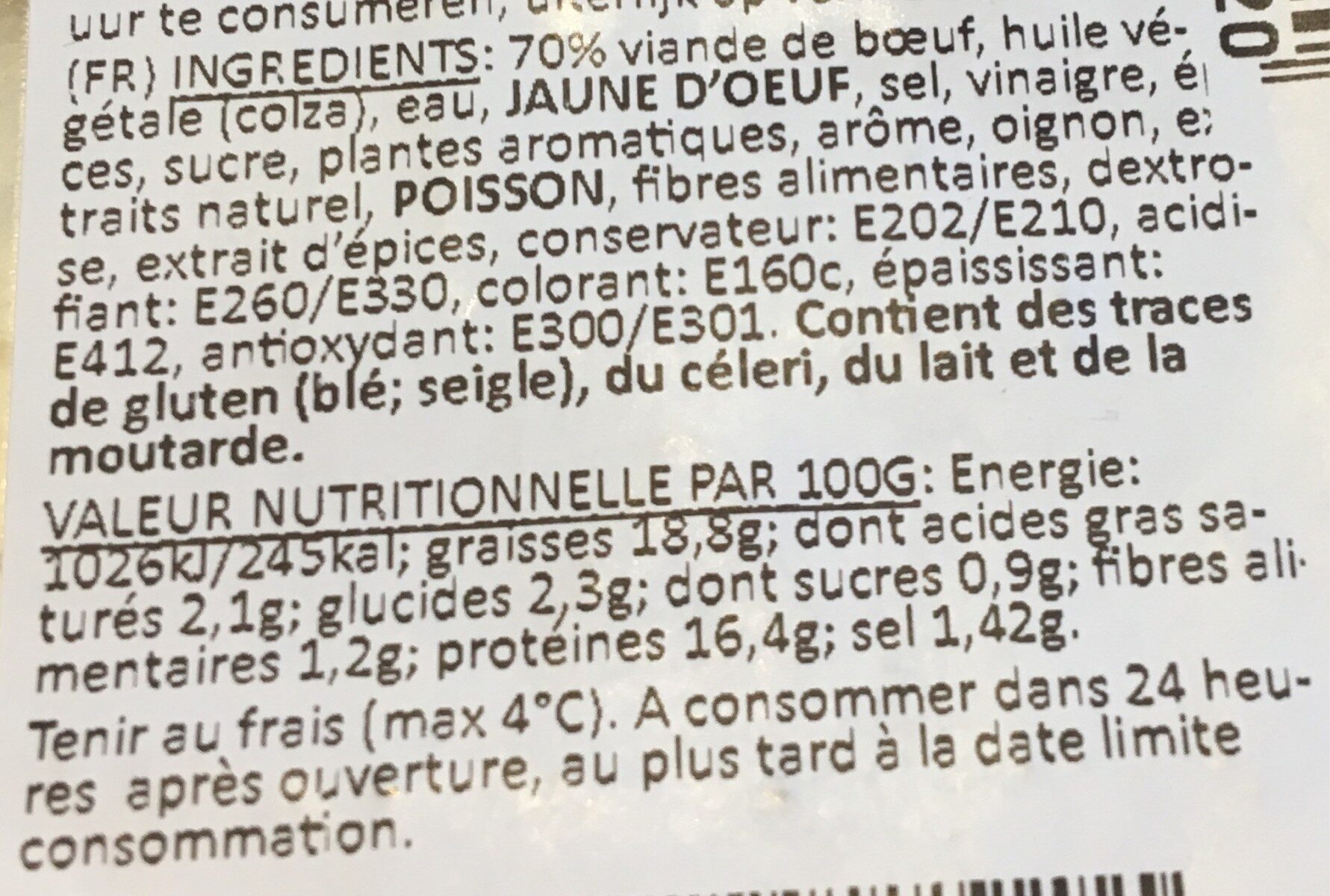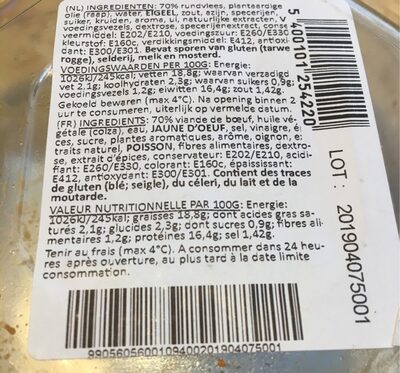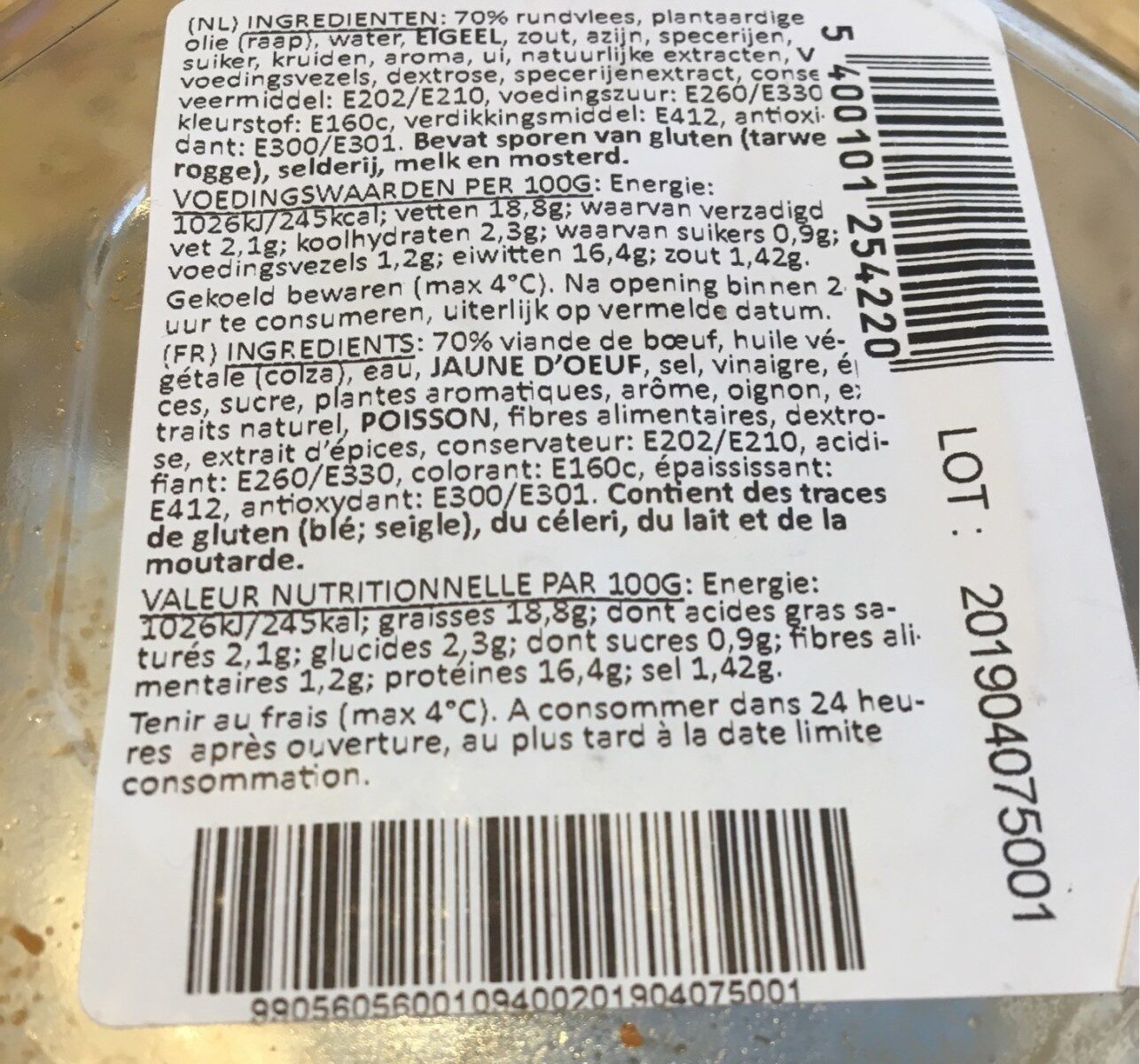Americain martino - Carrefour - 150
This product page is not complete. You can help to complete it by editing it and adding more data from the photos we have, or by taking more photos using the app for Android or iPhone/iPad. Thank you!
×
Barcode: 5400101254220 (EAN / EAN-13)
Quantity: 150
Packaging: Plastic
Brands: Carrefour
Categories: Meats and their products, Beef and its products, Meat preparations, Beef preparations, Ground meat preparations, fr:Américains préparés
Labels, certifications, awards: fr:Entrepreneurs + Engagés
Stores: Carrefour
Countries where sold: Belgium
Matching with your preferences
Environment
Packaging
Transportation
Report a problem
Data sources
Product added on by kiliweb
Last edit of product page on by koentje070.
Product page also edited by aleene, benoit-05, moon-rabbit, openfoodfacts-contributors, packbot, roboto-app, teolemon, yuka.ZVlNY012c2p2OXNybVAwUi9RSDgwZGRYeUlXc1owVHJOdWt4SVE9PQ, yuka.sY2b0xO6T85zoF3NwEKvlld9fOiE8yPjOx3Sm2Oy2_uNHrnxavtAwavlLqg.










